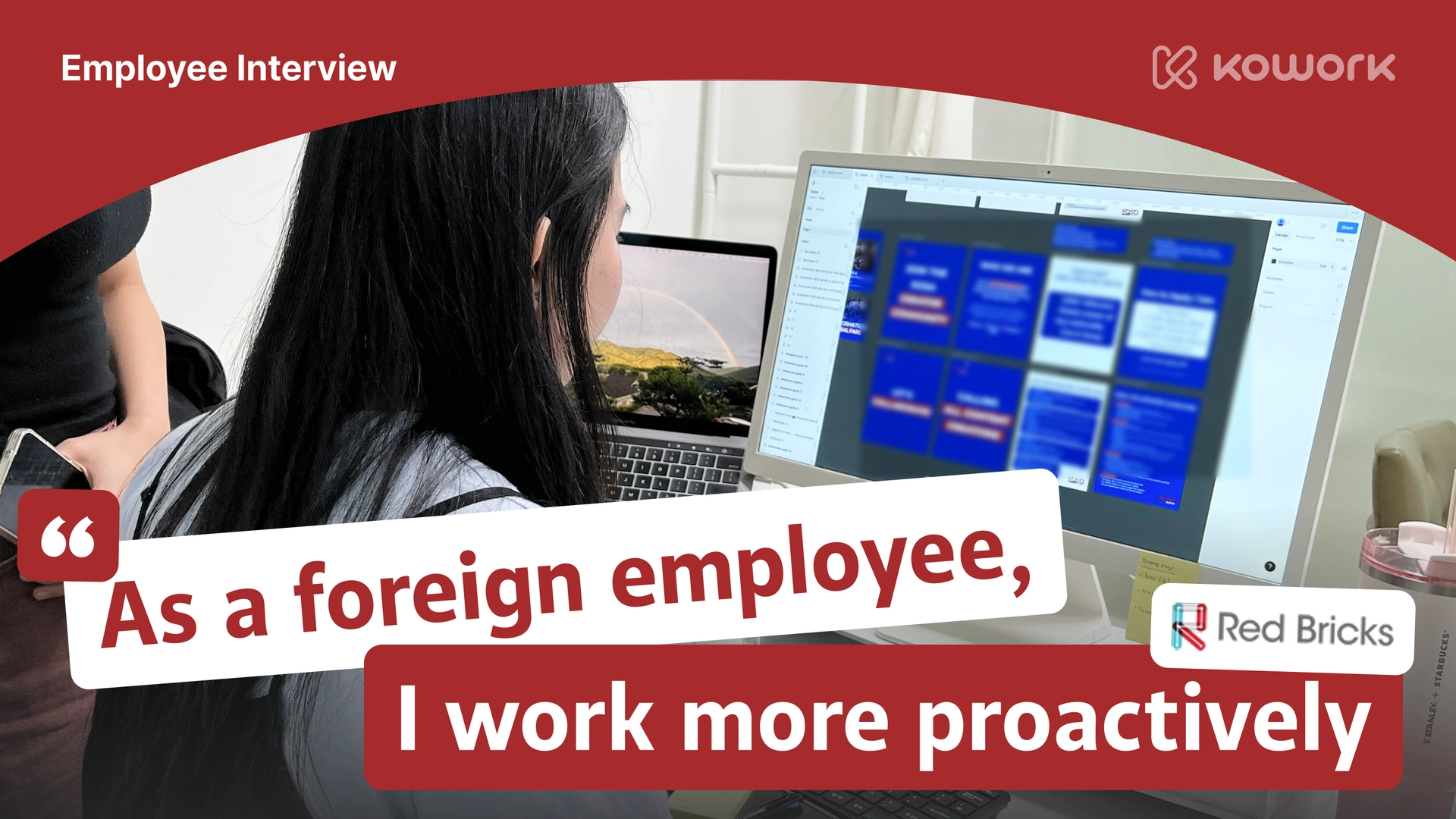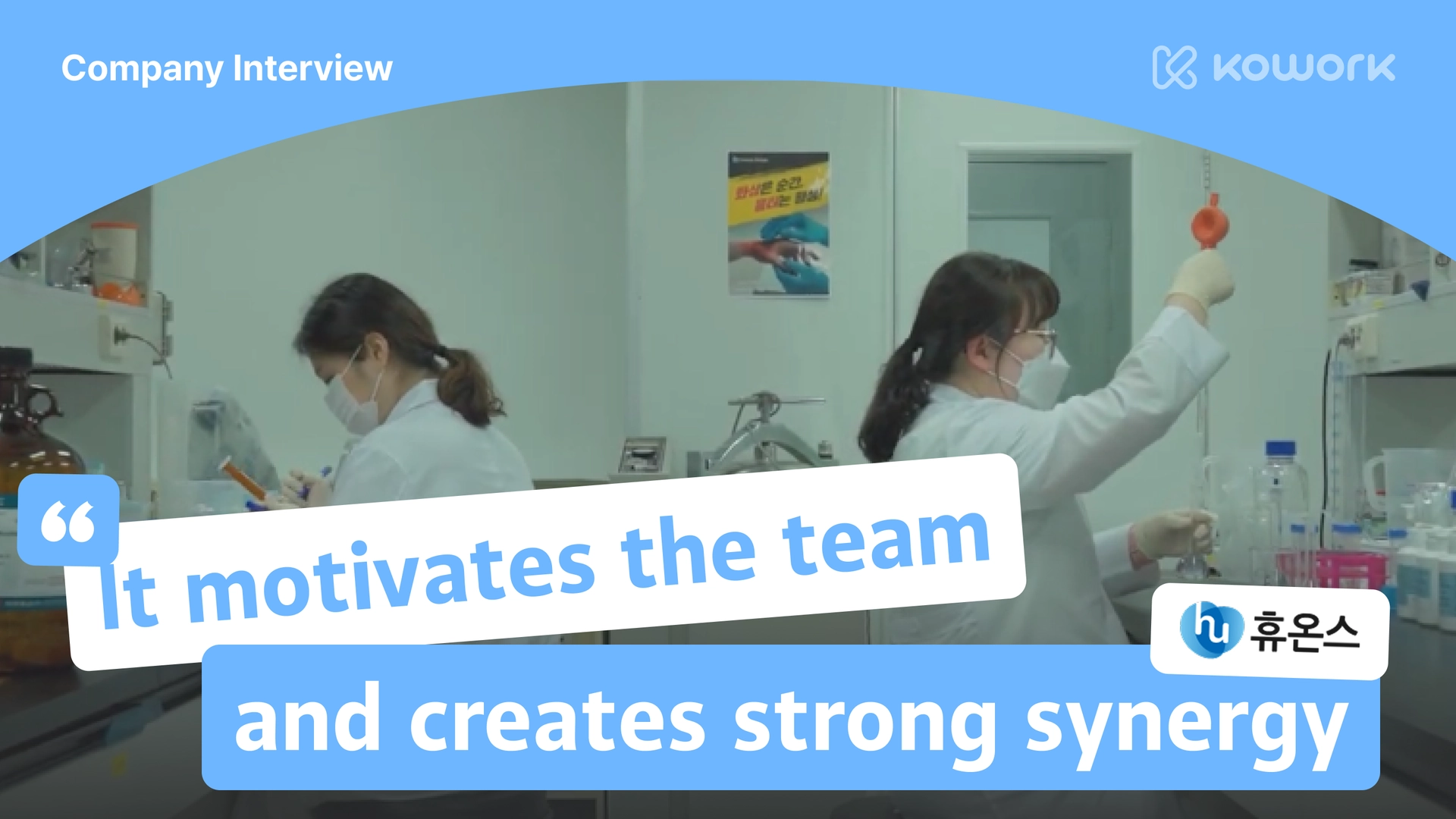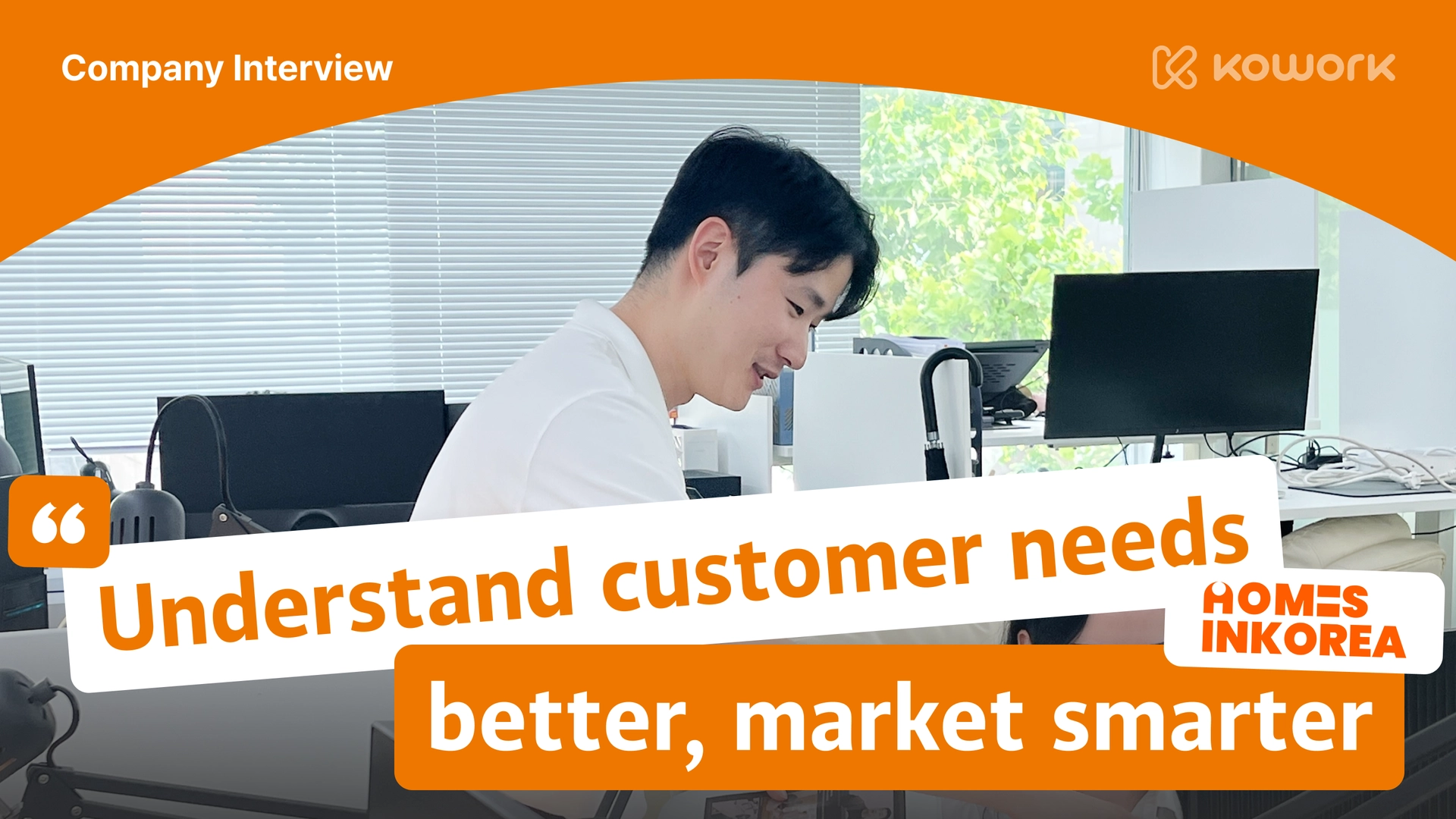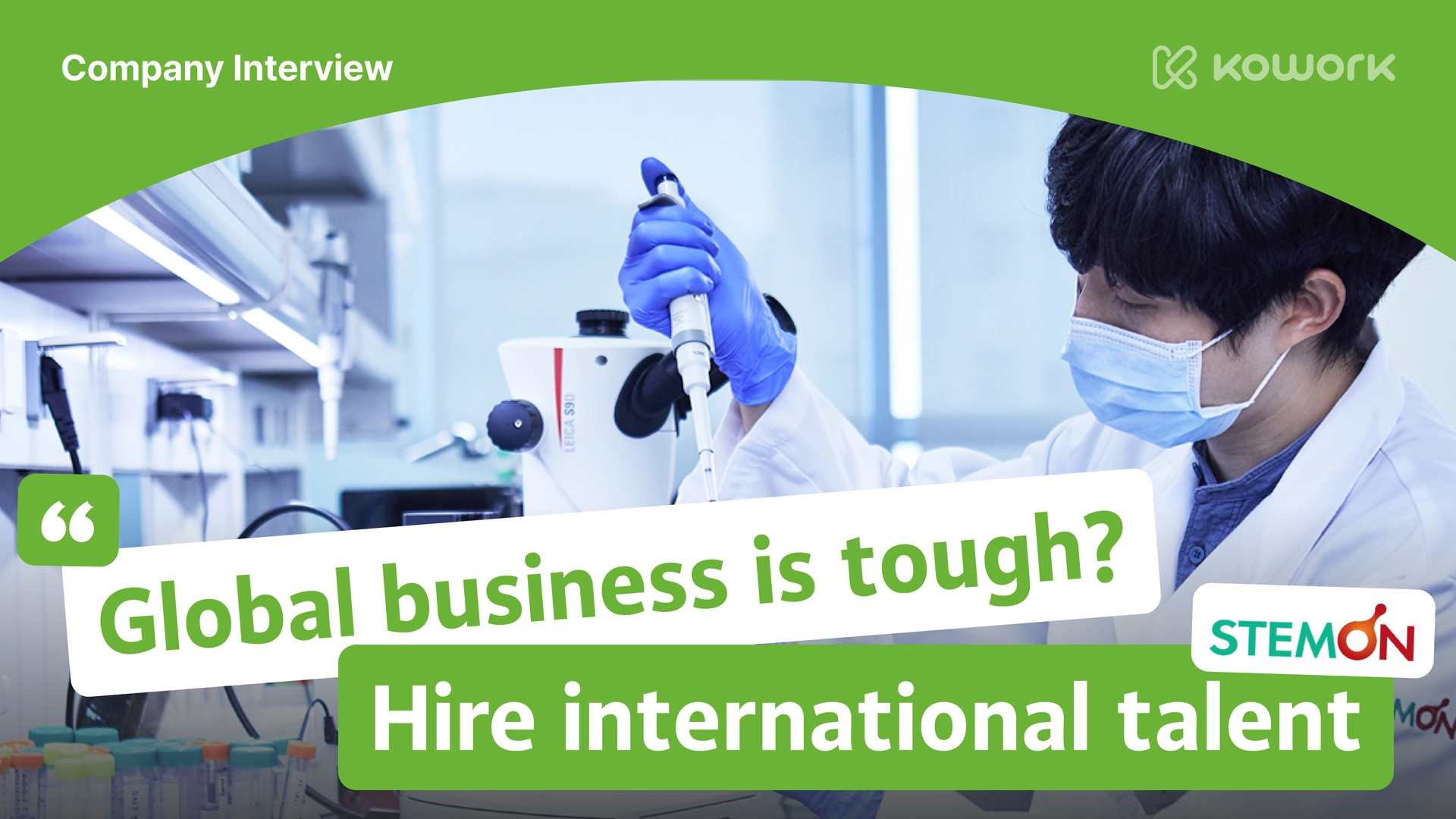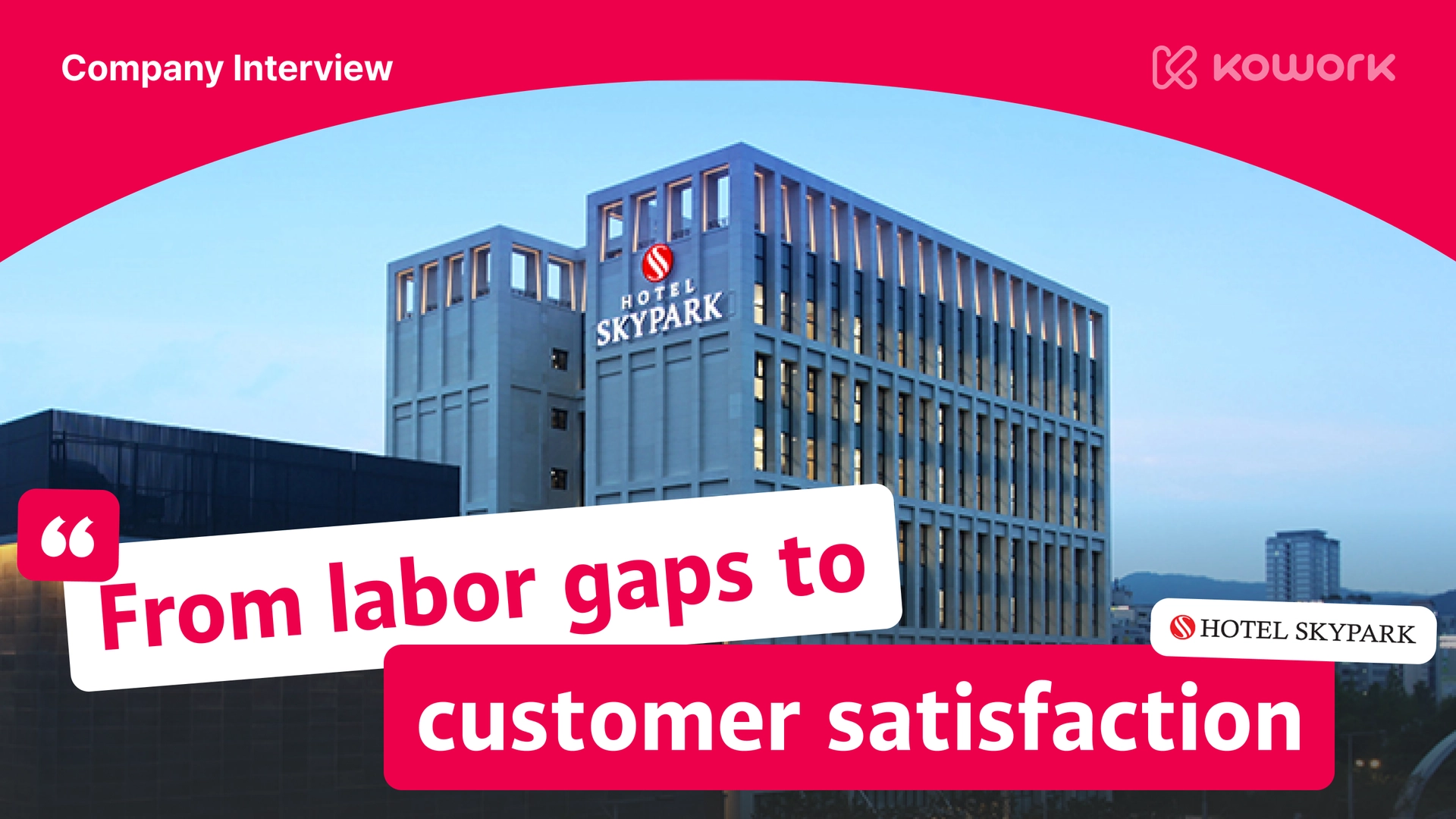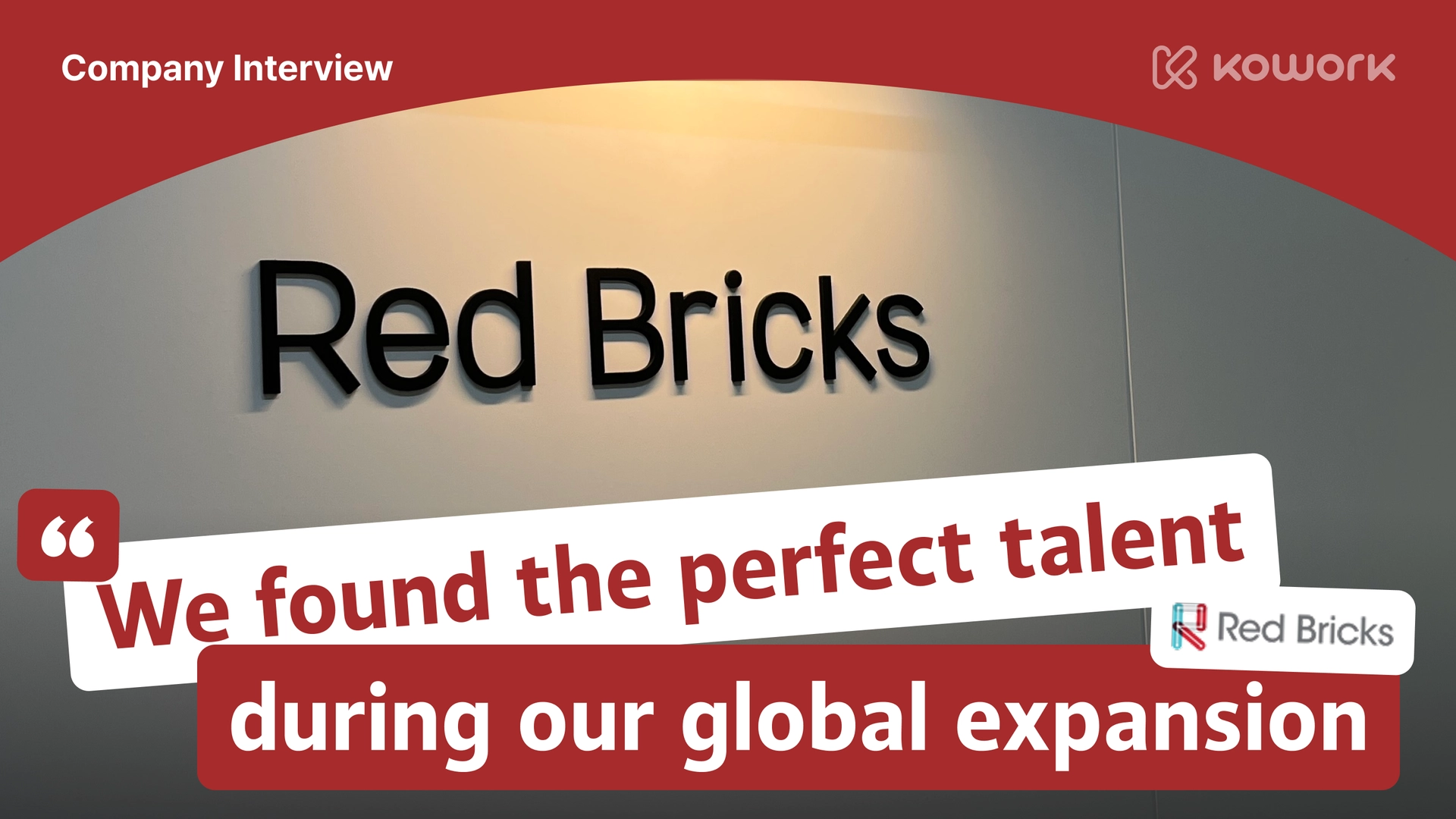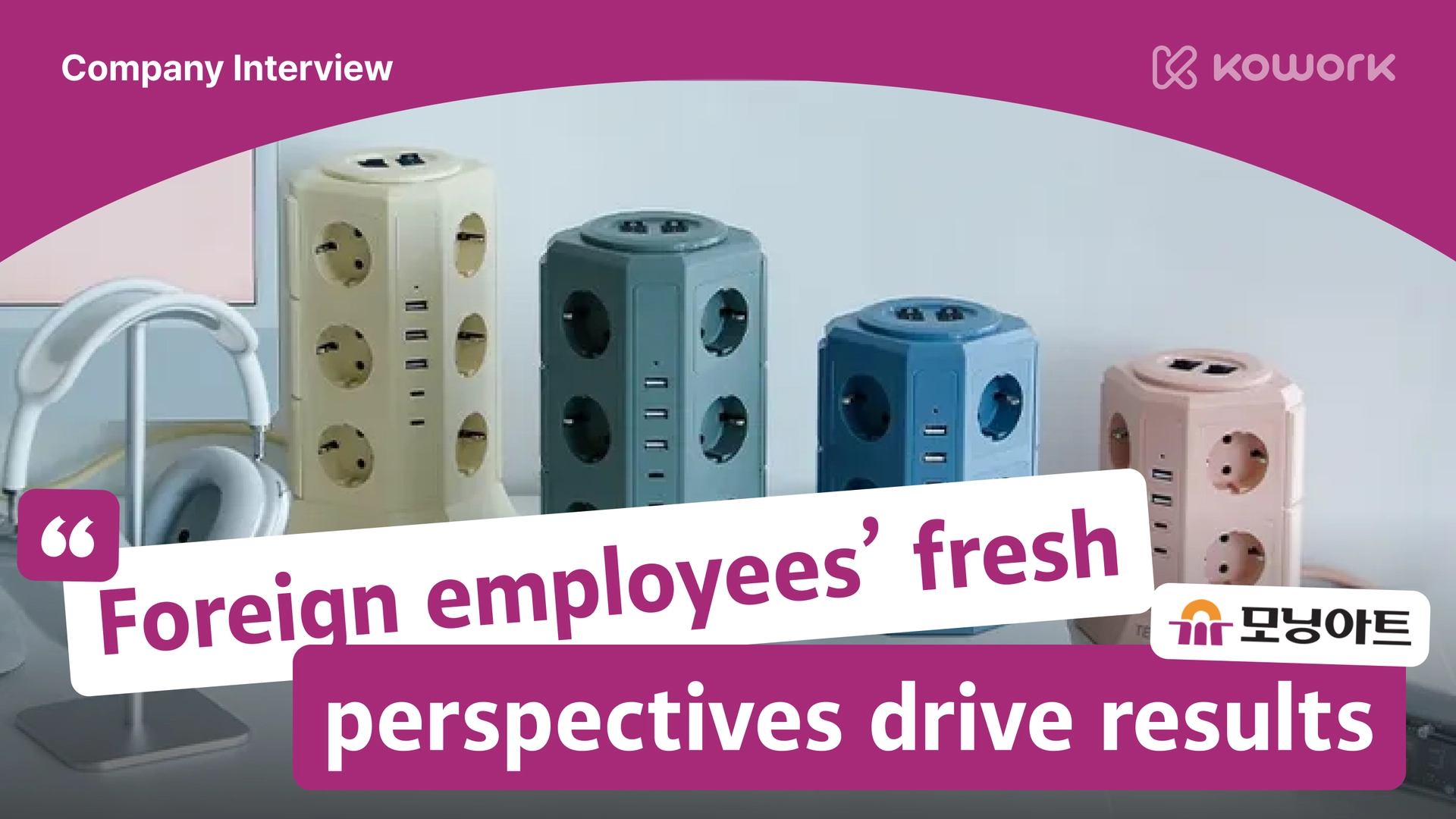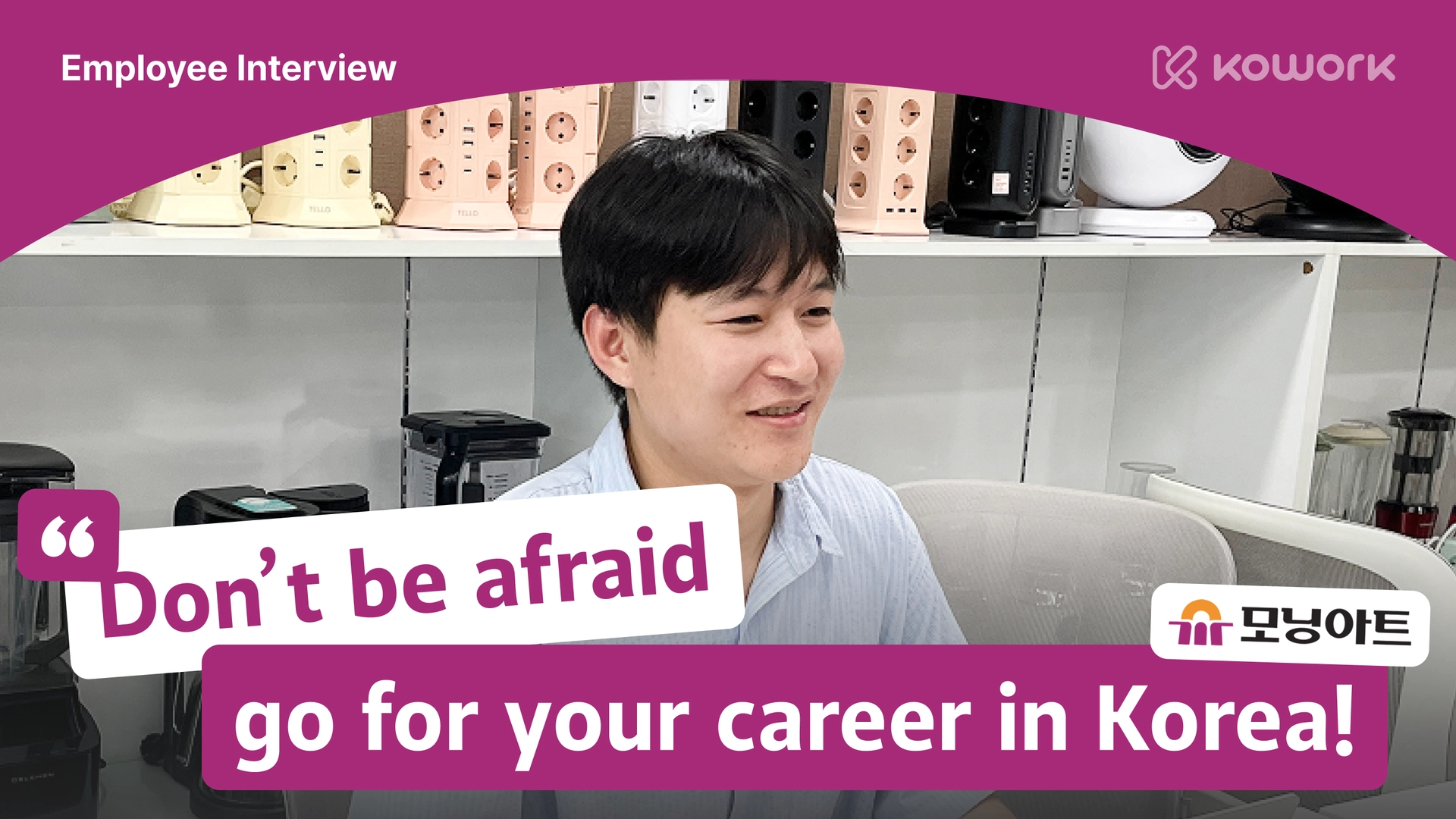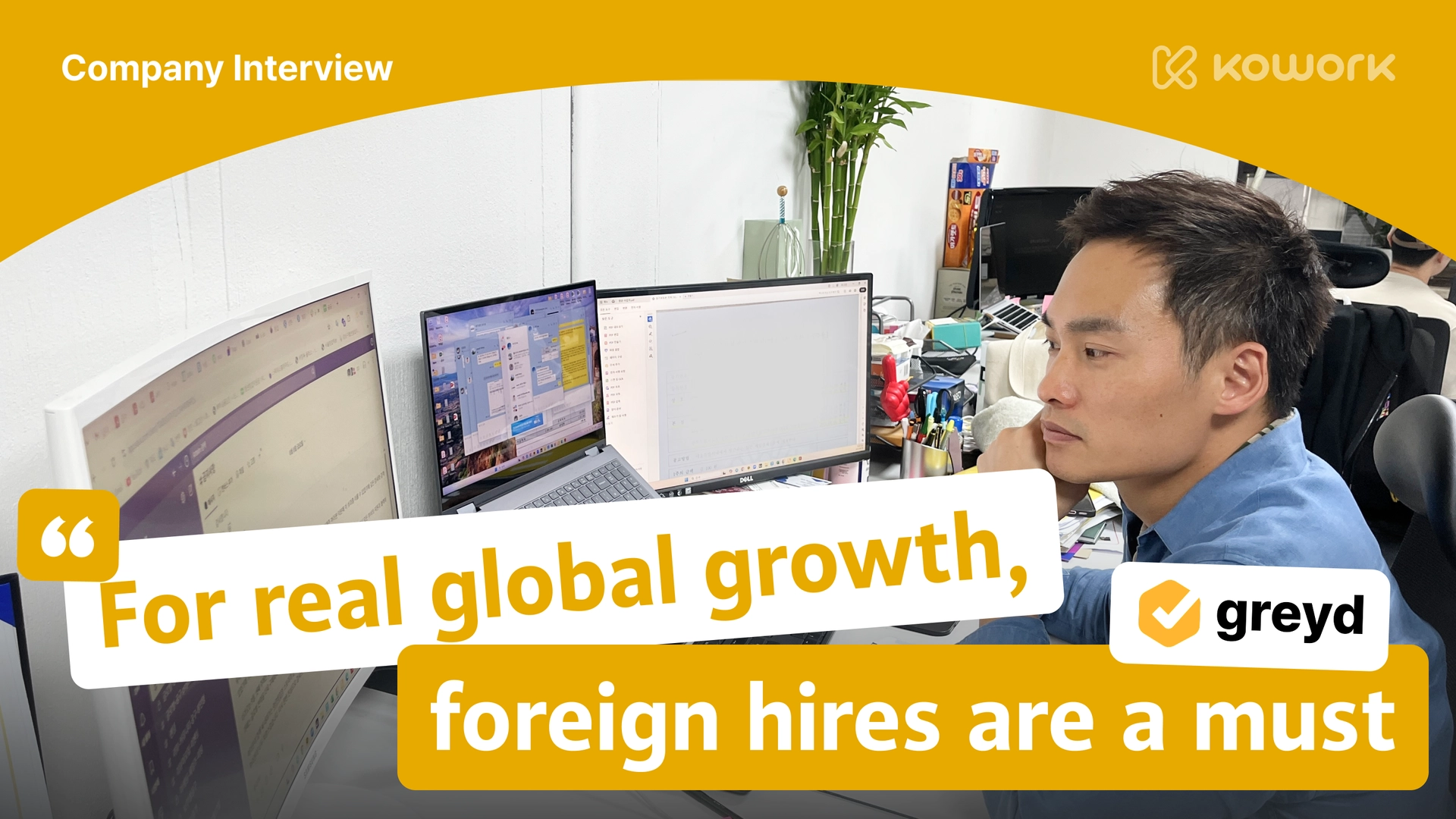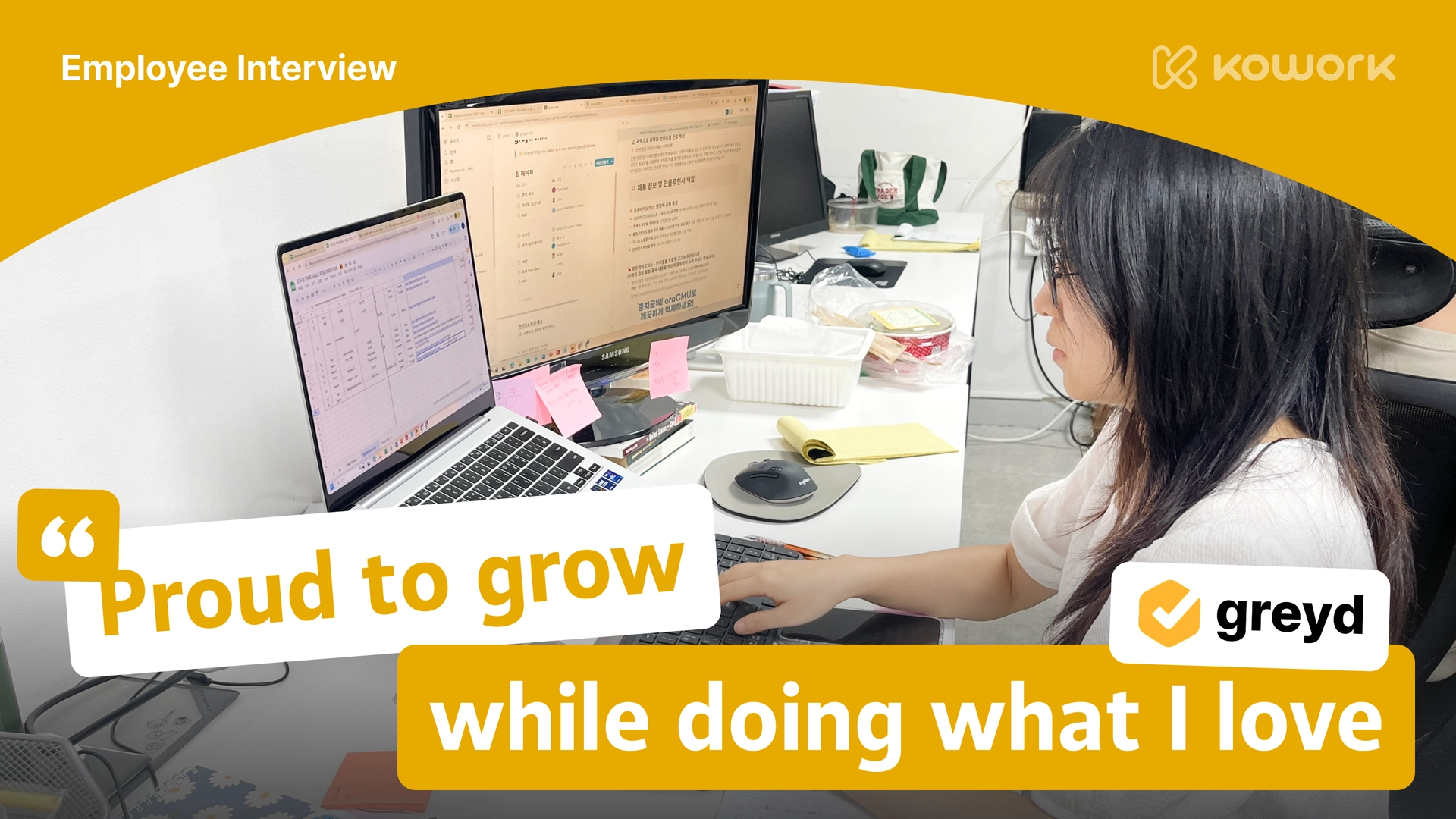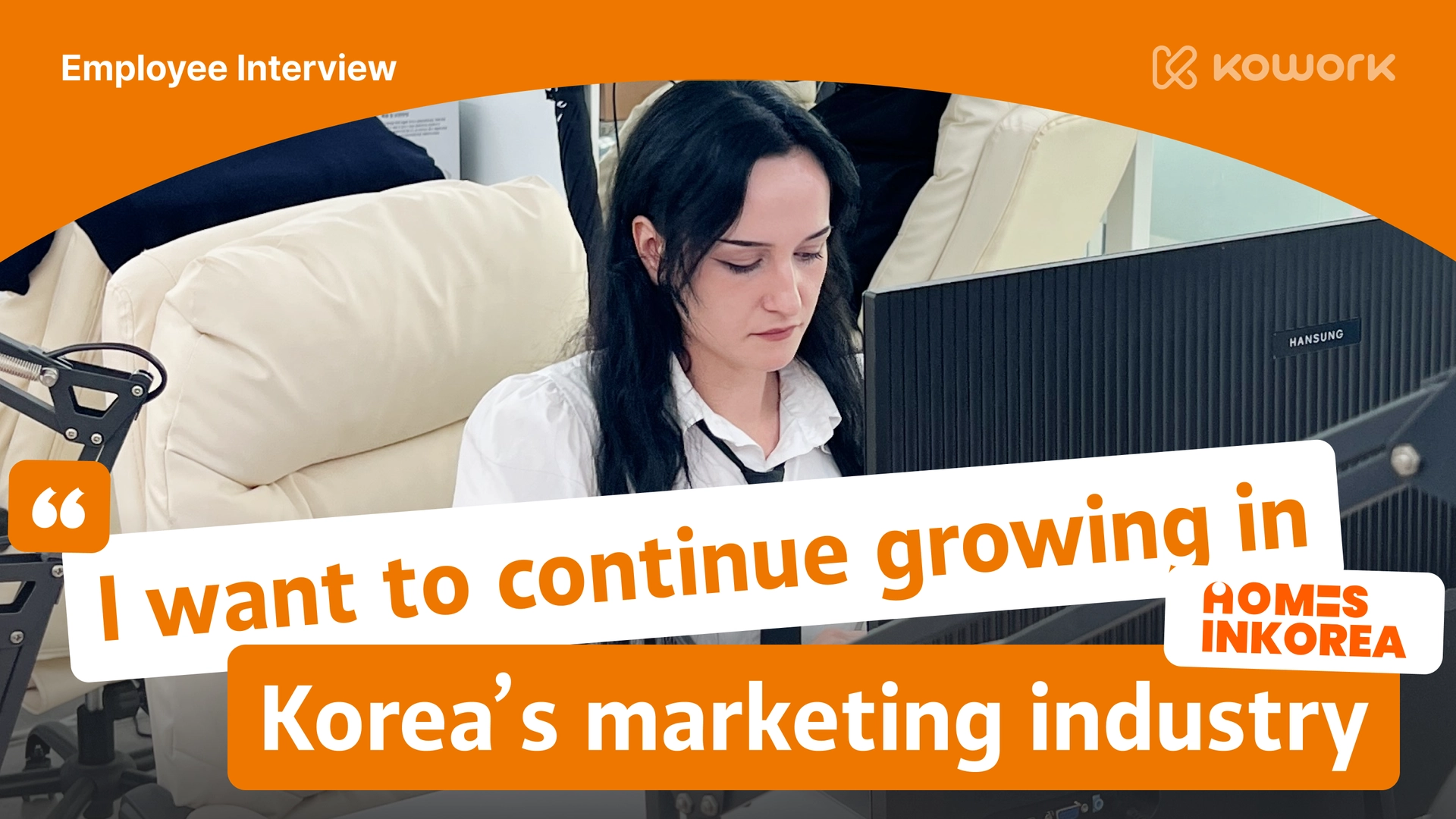Hello, this is KOWORK, Korea’s No.1 platform for foreign job seekers and employers.
Introducing a success story of a foreign job seeker in Korea.
Today, we had a conversation with Cheng Yulu, Victoria Novianti,
who are growing as global marketers at the marketing agency Redbricks. 👩💻
— Hello, nice to meet you. Could you introduce yourself?
Yulu: Hello, I’m Cheng Yulu from China. I’ve been in Korea for about three years, and at Redbricks, I mainly handle global marketing planning.
Victoria: Hello, I’m Victoria Novianti from Indonesia. I’ve also been in Korea for about three years, and I’m in charge of producing global marketing content.
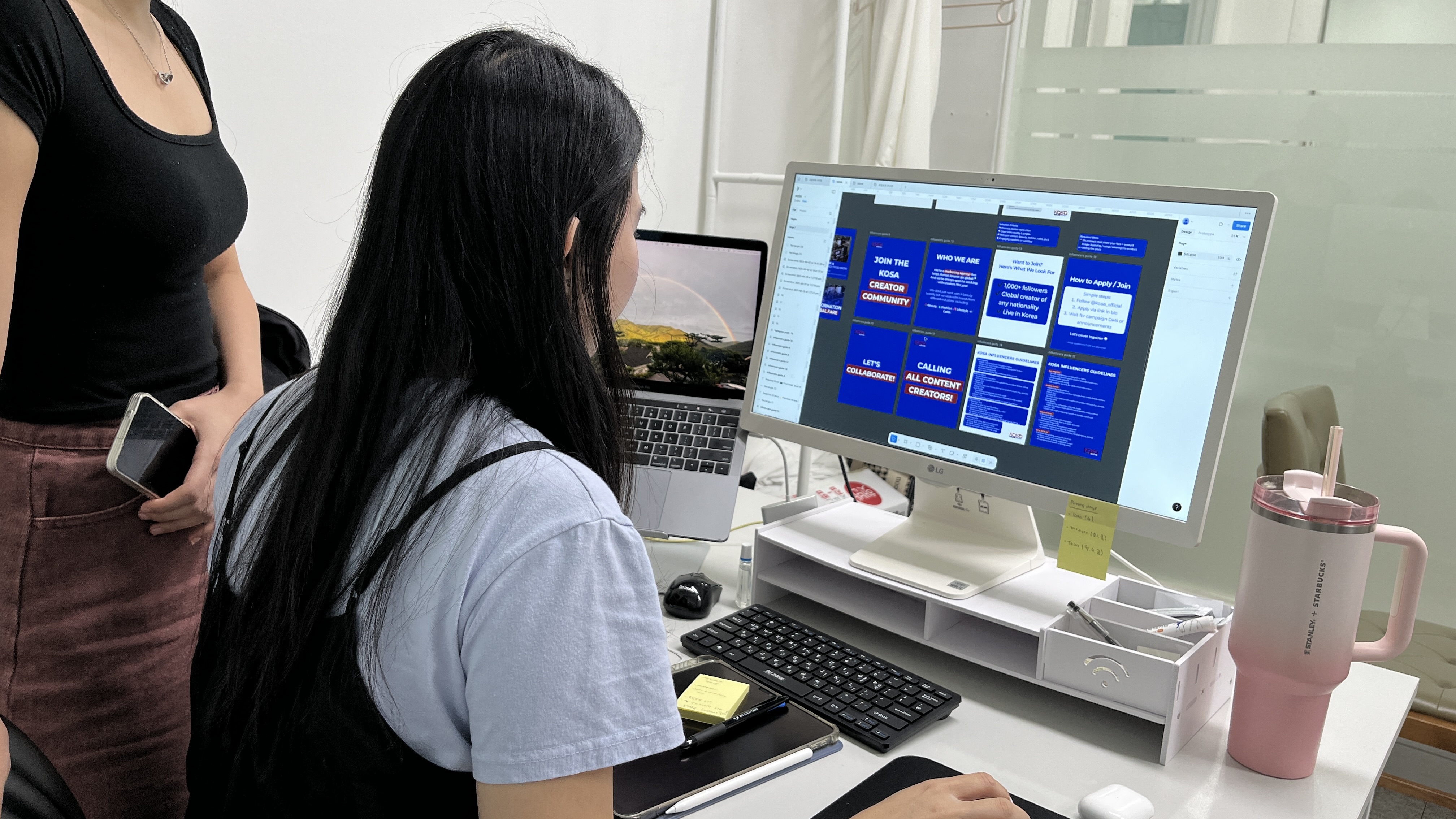
🔼 'Victoria' working on content creation.
— What first sparked your interest in Korea?
Yulu: I studied at a university in China, majoring in Korean language education. I came to Korea because I wanted to study the subject more deeply.
Victoria: I studied abroad in Australia, and I originally came to Korea for a language program. But I didn’t want to leave, so I ended up pursuing a master’s degree here (laughs).
— What was your biggest concern or challenge while preparing for a job in Korea?
Yulu: Although my major was Korean language education, it’s difficult for foreigners to get a job teaching Korean as a foreign language in Korea. Since there are many Korean natives with the same major, employers usually prefer hiring Koreans rather than “foreign instructors teaching Korean.” So it was hard to find a job that matched my major. That’s why I decided to look for a new career path and challenged myself with a marketing position. At first, writing a self-introduction essay was tough. And during interviews, they didn’t ask many questions about the essay, so I wondered, “Do I really need to write this?” But I realized it was important just to show that I had prepared it.
Victoria: For me, the challenge was that global marketing positions are highly competitive. Companies put a lot of weight on English proficiency. But since strong English skills are considered a basic requirement for the role, no matter how good I was, I still had to compete directly with Korean applicants, which was tough. While preparing for jobs, I also found it difficult to fit my resume into the Korean format. I wanted to write it more freely, but in Korea, resume formats are relatively standardized.
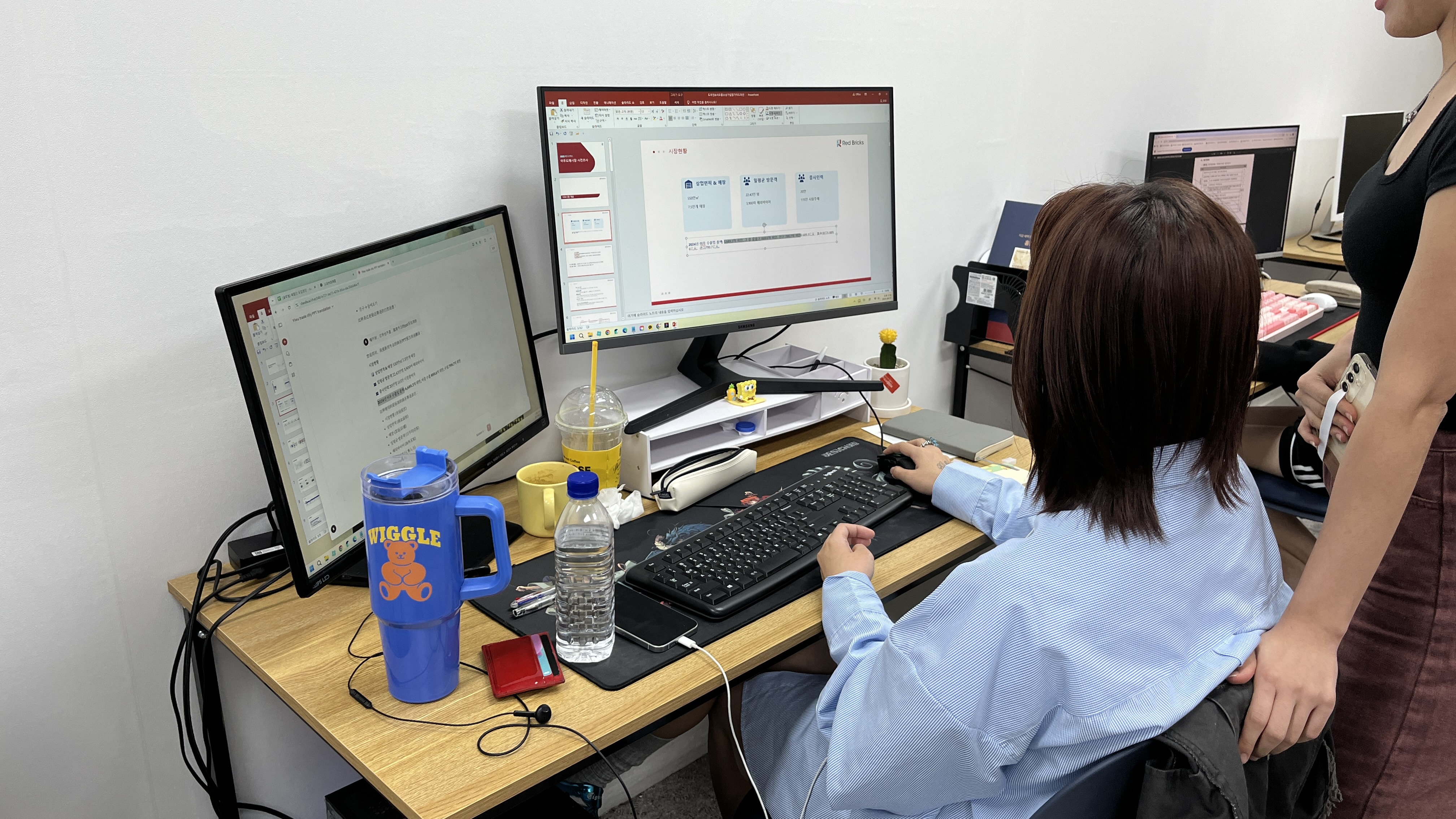
🔼 'Cheng Yulu' planning presentation materials.
— How’s work life going? Have you faced any difficulties adapting?
Yulu: I joined at the early stage of the global team, so I’ve been trying out and learning many new things. It’s not exactly a difficulty, but since the team is still in its early phase and most projects have only just begun, I feel it’s a bit unfortunate that I may not see clear results within my internship period.
Victoria: I feel the same. Aside from the work itself, the company environment has been surprisingly comfortable to adapt to, which I really liked. I had imagined Korean companies to be very strict and formal, but here we use the honorific “-님” when addressing each other, so the atmosphere is much less rigid than I expected.
— What has been the most difficult moment at work, and on the other hand, the most rewarding?
Yulu: Since I mainly handle planning tasks, I often need the CEO’s approval. After meetings with him, I usually prepare the entire proposal based on the discussion and then only receive final feedback or a decision. Unlike the more “Korean-style” approach, he praised me for being proactive in making decisions and driving the process forward, which made me really happy. As for challenges, as I mentioned earlier, it’s a bit frustrating not being able to predict the outcomes of the projects I’m currently working on.
Victoria: I mainly handle content production, so I do a lot of design work. Since I didn’t have prior experience in design, there are times when it feels difficult and overwhelming. But I see it as part of the learning process. What makes me feel most accomplished is when the product detail pages or content I worked hard on get published, and I can actually see my work along with the customer’s response.
— Lastly, do you have any advice for foreign job seekers?
Yulu: Don’t try to be overly perfect from the beginning—just go ahead and apply. Especially for entry-level positions, I think companies look more at the person themselves rather than just the simple experience listed on a resume. Also, as foreigners, we often have to think about visa issues when considering internships or full-time positions, but I believe it’s much more important to focus on finding the kind of work you truly want to do.
Victoria: I also think it’s better to present yourself honestly rather than trying to overly embellish your resume or cover letter. I recommend showing what you can do well, what you want to do, and highlighting your unique traits and strengths.
If you have any questions about working in Korea as a foreigner, Just reach out anytime!
Anyone can get a consultation for free.
